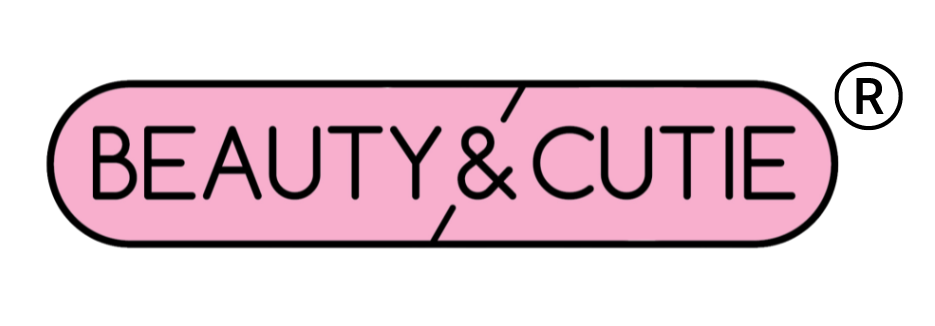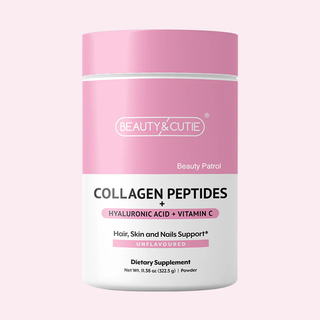As women, we are always chasing the dream of achieving perfect hair, skin, and nails. Unfortunately, in reality, this dream can be elusive, especially when it comes to hair. Many of us experience hair loss, thinning hair, or other hair issues that can be frustrating and even embarrassing. As a result, we often turn to supplements or other remedies to try and reverse these symptoms. One common question that arises is whether multivitamins can help with hair growth. In this blog post, we will explore the potential role of multivitamins, minerals, and other supplements in achieving healthy hair, as well as consider alternatives that may be more effective.
Are There Vitamins That Support Healthy Hair Growth?
Yes, there are vitamins that can support healthy hair growth. Vitamins A, C, D, E, and the B-complex family, as well as minerals such as iron, selenium, and zinc, are all important for healthy hair growth. However, it's important to note that taking a daily multivitamin may not provide sufficient amounts of these nutrients for optimal hair growth.
Instead, consider incorporating more of these vitamins and minerals into your diet through foods like leafy greens, nuts, and seeds. Additionally, collagen and amino acids like lysine, methionine, and proline are also important for hair health and may be found in specialized hair supplements. It's always best to consult with a healthcare professional before starting any new supplement regimen.
Vitamin B
Vitamin B is a group of essential nutrients that play a vital role in maintaining healthy hair growth. In particular, vitamin B7 (biotin) is often touted as a key player in promoting hair growth.
However, it's important to note that vitamin B works in concert with other vitamins and minerals, and taking a daily multivitamin may not provide sufficient amounts of these nutrients for optimal hair growth. Instead, focus on incorporating foods like leafy greens, nuts, and seeds into your diet to boost your intake of vitamin B, along with other important nutrients like iron, selenium, and zinc.
Vitamin C
Vitamin C is one of the essential nutrients that plays a vital role in maintaining healthy hair growth. It helps in the production of collagen, which is a structural protein that supports hair growth and strengthens hair strands.
Vitamin C also has antioxidant properties that protect hair follicles from damage caused by free radicals. Additionally, it helps in the absorption of iron, another crucial nutrient for healthy hair growth. However, taking a daily multivitamin may not provide sufficient amounts of vitamin C for optimal hair growth.
Instead, focus on incorporating vitamin C-rich foods like citrus fruits, kiwi, berries, tomatoes, and peppers into your diet to boost your intake of this important nutrient. Moreover, consider supplements that are specifically formulated for hair growth, and always consult with a healthcare professional before starting any new supplement regimen.
Vitamin D
Vitamin D is an essential nutrient that plays a crucial role in maintaining healthy hair growth and preventing hair shedding. It is known to be a potent anti-inflammatory agent, which helps to reduce inflammation in the hair follicles, thereby promoting healthy hair growth.
Vitamin D also helps the body to absorb essential minerals like calcium, which are important for the formation of strong hair shafts. Studies have shown that individuals with low levels of vitamin D are more likely to experience hair thinning and hair loss.
To ensure optimal levels of vitamin D, it is recommended to spend some time in the sun each day or to take a vitamin D supplement, especially for those who live in areas with limited sunlight. Incorporating vitamin D-rich foods like fatty fish, egg yolks, and mushrooms into your diet can also help to maintain healthy hair growth.
Do The Results Of Taking Multivitamins For Hair Growth Appear Quickly?
The results of taking multivitamins for hair growth may not appear quickly. It can take several weeks or even months of consistent use to see any noticeable changes. Additionally, the effectiveness of multivitamins for hair growth may vary depending on the individual's overall health, diet, genetics, and other factors.
It's important to consult with a healthcare professional before starting any new supplement regimen and to maintain a healthy diet and lifestyle in order to support optimal hair growth. Remember, patience and consistency are key when it comes to seeing results from any hair growth regimen.
Is It Safe To Take Multivitamins For Hair Growth Over a Long Period Of Time?
Taking multivitamins for hair growth over a long period of time is generally safe as long as you follow the recommended dosage and do not exceed the upper intake levels. The US National Institutes of Health advises that basic multivitamins/mineral supplements, which contain most or all vitamins and minerals in amounts not exceeding their Recommended Dietary Allowances (RDA), Daily Values (DV) or Adequate Intakes (AI), are safe for daily use.
However, high-potency multivitamins that contain amounts significantly higher than the RDA, DV, AI, or UL, could potentially increase the risk of adverse effects, so it is important to follow the recommended dosage.
It is also important to note that while some vitamins and minerals are associated with hair growth, such as vitamins A, C, D, E, the B complex family, and minerals iron, selenium, and zinc, taking multivitamins alone may not be enough to address hair loss or thinning.
Nutritional gaps can be filled by incorporating more hair-healthy foods into your diet, such as collagen-rich bone broths, eggs, meat, fish, and silica-rich foods. Alternatively, you can use supplements specifically formulated for hair growth and appearance, which may contain additional compounds not found in a standard multivitamin, such as the amino acids lysine, methionine, proline, and biotin.
Ultimately, it is best to consult with a healthcare professional or a licensed dietitian to determine the best course of action if you're looking for prevention of female pattern baldness.
The Research Behind Keratin
Keratin is a fibrous protein that is found in the epidermis, hair, nails, and feathers of all vertebrates. In the human body, there are two types of keratin: alpha-keratin and beta-keratin.
Alpha-keratin is found in hair, nails, and skin, while beta-keratin is found in feathers, beaks, and claws. Research suggests that keratin plays a crucial role in hair growth, as it makes up the majority of the hair shaft. It is believed that the amino acids that makeup keratin help to strengthen hair, and deficiencies in keratin can lead to hair loss and breakage.
Keratin deficiencies can have a significant impact on hair health, leading to symptoms such as dryness, brittleness, and thinning. In some cases, keratin deficiencies can even lead to hair loss.
While it is important to maintain a balanced and healthy diet in order to support healthy hair growth, some people may also benefit from taking supplements specifically formulated to support hair health.
These supplements may contain amino acids, vitamins, and minerals that are important for the production of keratin and other proteins that make up hair. If you are concerned about hair loss or thinning, it is important to consult with a healthcare professional to determine the best course of action for your individual needs.
What About Alopecia?
According to the American Academy of Dermatology, Alopecia is a medical condition that causes hair loss, typically on the scalp but also on other parts of the body. It can occur in both men and women and can be caused by a variety of factors, including genetics, stress, hormonal imbalances, and autoimmune disorders.
The severity and pattern of hair loss can vary from person to person, with some experiencing complete baldness while others only have thinning hair. Treatment options for alopecia include medications, such as minoxidil and corticosteroids, as well as hair transplant surgery. Lifestyle changes, such as reducing stress and improving diet and exercise habits, can also be helpful in managing the condition.
There has been some debate over whether vitamin deficiency contributes to alopecia. While certain vitamins, such as vitamin D and biotin, have been linked to healthy hair growth, there is limited evidence to suggest that vitamin deficiency is a direct cause of alopecia.
However, it is important to maintain a balanced and healthy diet in order to support overall hair health. Nutrients such as protein, iron, and zinc are crucial for healthy hair growth, and deficiencies in these nutrients can lead to thinning hair or hair loss. Incorporating hair-healthy foods into your diet, such as eggs, meat, fish, and bone broth, can help to fill nutritional gaps and support healthy hair growth.
Male Pattern Baldness / Female Pattern Baldness vs. Alopecia
While the technical medical definition of baldness is "alopecia", pattern baldness is simply an extension of general alopecia and is not defined as a medical condition. Up to half of men and women will experience "androgenetic alopecia", which is the technical definition of pattern baldness according to Chin H Ho, an author writing for the National Library of Medicine.
Conclusion
In conclusion, maintaining healthy hair is a multifaceted process that involves a variety of factors, including genetics, lifestyle, and nutrition. While multivitamins can be beneficial to overall health, they may not be the most effective solution for addressing hair-related issues, such as thinning or hair loss.
Instead, individuals should focus on consuming a balanced diet that is rich in nutrients, such as protein, iron, and zinc, that are crucial for healthy hair growth. Additionally, there are specialized supplements that have been formulated specifically for hair, skin, and nail health that can be considered as an alternative to basic multivitamins.
It is also important to pay attention to your daily beauty routine and avoid using products that contain harmful chemicals or compounds that can damage your hair and skin. By taking a holistic approach to hair health, you can help promote strong, healthy, and vibrant hair that can make you look and feel your best.
If you are experiencing significant hair loss or baldness, it is recommended that you consult with a healthcare professional to determine the best course of action for your individual needs.
Final Thoughts
At Beauty and Cutie, we believe true beauty begins with nourishment. Our collagen powders are expertly crafted to provide the essential nutrients your hair, skin, and nails need to thrive. Packed with collagen peptides and amino acids, our formula supports cell regeneration for stunning, healthy results. Unlock your best self with Beauty and Cutie today!
Sources:
- https://www.hsph.harvard.edu/nutritionsource/vitamins/vitamin-b/
- https://www.hsph.harvard.edu/nutritionsource/vitamin-c/
- https://ods.od.nih.gov/factsheets/VitaminD-HealthProfessional/
- https://ods.od.nih.gov/factsheets/MVMS-HealthProfessional/
- https://my.clevelandclinic.org/health/body/23204-keratin
- https://www.aad.org/public/diseases/hair-loss/types/alopecia
- https://www.ncbi.nlm.nih.gov/books/NBK430924/


